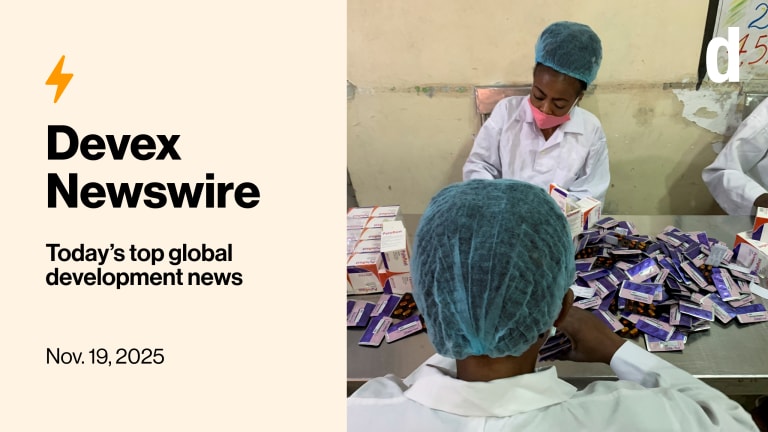
EDITOR’S NOTE: Will the next president be another American? Nancy Birdsall of the Center for Global Development raises interesting questions on the future of the World Bank presidency in this article from her Global Development: Views from the Center blog.
The insider talk on the next World Bank president is heating up, with rumors that Robert Zoellick will formally initiate the process in the United States system shortly by indicating to the White House that he will step down at the end of his term in June.
Then begins the collision in the White House between its promises to the global community and political realities at home. The collision boils down to the question of whether or not the White House will try to ensure that the longstanding U.S. privilege of picking World Bank presidents prevails once more—arguing that the Europeans after all got their way on another European at the IMF last summer. (For more on this issue, go to the updated CGD Initiative page on the Future of the World Bank here or a Bretton Woods Project site on the World Bank president here).
On paper, the United States is committed to a process for selection of the next president that is “open, transparent and merit-based”—so spoke the G-20 with the United States at the table at its June 2010 G-20 Summit in Toronto. The year before a High Level Commission convened by former president of Mexico Ernesto Zedillo at Zoellick’s request went further, urging that “nominations from all qualified candidates should be welcomed, regardless of their nationality.” And that was the near-unanimous view of more than 700 respondents from 70 countries, including the Americans, who responded to this 2007 CGD survey.
But then there is the political reality: can the Obama White House in an election year, facing a Congress suspicious of a globally honored president, eschew pushing through its own American candidate? And anyway would a non-American at the helm in the World Bank be able to raise the resources on Capitol Hill that have already been committed in principle by the United States for the next several years? The election year timing puts the White House in an especially unenviable position. There is a risk that the World Bank could become a highly partisan, U.S. hot-button issue, as the UN has too often been.
Meanwhile: will the Chinese get together with the Indians and the Brazilians and other emerging markets to support a candidate of their own (as they did not in the case of the IMF)? Will some eminently eligible candidates—former heads of state included—from some countries be overlooked because they are members of the wrong party at home? Will the board of the World Bank (as did the IMF board) announce its plans to formally interview all candidates that are nominated? Will the Europeans signal early to the United States their understanding and sympathy and full support for whomever the White House proposes—or, as did the United States when Christine Lagarde was the European candidate, wait and see where the chips are falling?
With the White House between a rock (sensible promises) and a hard place (the U.S. Congress) the best that can be hoped is that it doesn’t panic and doesn’t rush (if it hasn’t already). Let there be time for a global search for the best possible candidate. Let there be space for candidates—American and otherwise—to emerge and campaign. There are excellent American candidates who might prevail in an open competitive process (as did Christine Lagarde at the IMF). Should an American end up as president, he or she would benefit tremendously from the legitimacy that only an open selection process can bestow.
For one thing, the next president will need global legitimacy to rescue the bank from the risks of growing irrelevance, and the need for a new vision and direction, if it is it to address the looming challenges of this century to its mission of ending poverty.
In the meantime (if there is that time and space), we at CGD will be offering suggestions about the process and possible candidates (stay tuned!)—and about that new vision and direction. To that end, we have reactivated a CGD initiative on the Future of the World Bank (again, for more on this see here) including recommendations to earlier incoming presidents plus new work on the future of IDA, the Bank’s concessional lending arm, and its new lending instrument (just the third ever), the Program for Results (P4R). For email notifications of updates including CGD blog posts on the World Bank during the anticipated transition, sign up here.
Republished with permission from the Center for Global Development. View original article.








